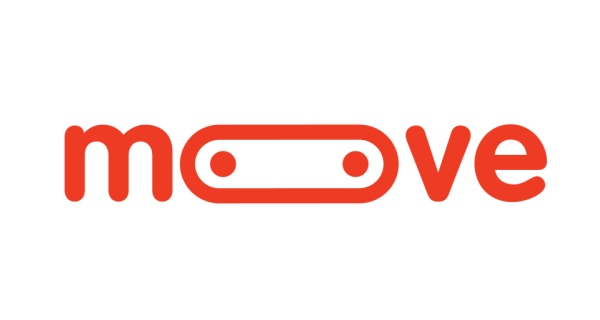E-Business
Moove Rolls into Kenya, Broadens Vehicle Financing to Bikes and Trucks

Moove, an African mobility fintech, has launched operations in Nairobi, its first city in East Africa and sixth on the continent. To expand their vehicle and product offerings to customers, the revenue-based vehicle financing company has partnered with Uber to allow ride-hailing and delivery drivers to purchase motorcycles for Uber Connect, UberEats deliveries and UberBoda trips.

In addition, following its recent partnership with pan-African e-logistics platform Lori Systems, Moove has expanded its logistics vehicle offering with Kenyan fulfilment and last-mile logistics company Sendy.
Entering the East African market allows Moove to drive closer to its goal of democratizing vehicle ownership by providing revenue-based vehicle financing across Africa.
With Kenya’s lending costs almost twice that of South Africa’s and the average loan deposit standing at 10% – 30%, affordability is still an issue for entrepreneurs who lack a credit history, a typical financing hurdle on the continent.
Moove will use the market opportunity to enable drivers to leverage its alternative credit-scoring technology and gain access to brand new vehicles which creates more good job opportunities within the mobility industry.
Commenting on the expansion, Co-Founder and CEO of Moove, Ladi Delano said: “Kenya already has a thriving mobility and entrepreneurial industry for us to tap into and roll out our financing solutions, so we’re very excited to be launching into Nairobi, our sixth market in 18 months.
As one of the biggest economies across Africa, our move into Kenya serves as a gateway to other East African markets. We are excited to continue our expansion, having achieved over 50%+ MoM growth since launch”
“Moove recently received the IFC Corporate Award, as one of the top 20 most impactful and transformational companies in their portfolio that is applying an innovative and scalable solution towards solving a continent-wide problem.
This further validates that our model is really working, in getting customers to the virtuous path of vehicle ownership, and by doing so, we are creating employment and income opportunities for these mobility entrepreneurs.”
On the back of the recent launch of its first two-wheeler bike product, Moove Xpress, in Lagos, Moove is expanding the new vehicle class to East Africa.
As a result of the partnership with Uber, drivers in Nairobi will have access to Moove Xpress bikes for UberConnect (peer to peer delivery), UberBoda trips and UberEats food deliveries. Drivers will be empowered by Moove’s vehicle financing solution, which gives them the flexibility to increase their earnings and productivity.
Currently estimated at $80bn, the two-wheeler hailing market in Sub-Saharan Africa is plagued by a lack of access to new vehicles as well as a lack of regulation for both drivers and riders.
Moove is growing its reach in East Africa, in order to increase asset ownership of brand new motorbikes while ensuring regulatory compliance in the sector, ultimately leveraging ride-hailing and delivery apps to boost revenue.
In addition, Moove has also signed a new partnership with Sendy, a Series B end-to-end logistics, retail and freight company. The Sendy partnership expands Mooves logistics vehicle offering following its recent partnership with Lori Systems to fuel the growth of Africa’s trucking and logistics industry.
Lack of financing for Africa trucking stands at less than 1%, acutely illustrating the size of the market opportunity for Moove in solving the problem of access to vehicle financing on the continent and addressing a similar supply constraint faced by many mobility and ride-hailing marketplaces.
With the launch in Kenya, Tayo Oyegunle, Chief Operations Officer, states, “The team and I are proud to be bringing financial inclusion to mobility entrepreneurs in Nairobi, Kenya.
We’re offering flexible employment through revenue-based financing, thus empowering drivers and driving growth in Africa’s mobility industry, underlined by our commitment to ensure that 50% of our customers are female.
The Uber, Sendy and Lori System partnerships will also allow us to enter the market with a substantial range of products and services for mobility entrepreneurs to take advantage of by moving people, goods and services.”
Co-founded in 2019 by serial entrepreneurs, Ladi Delano and Jide Odunsi, Moove provides asset-backed vehicle financing by embedding its alternative credit-scoring technology onto ride-hailing and e-logistics platforms.
Moove offers loans to customers by selling them new vehicles and financing up to 95% of the purchase price within five days of signing up.
Customers can choose to repay their loans over 12, 36, 48, or 60 months, paying a percentage of their weekly income through the Moove app, which manages all transactions and provides access to other financial products on the platform. To date, Moove-financed cars have completed over 1.6 million trips with over 20 million kilometres travelled across its markets.
E-Business
Natasha: TMG Demands Probe of Alleged Data Breach in Failed Recall

Transition Monitoring Group (TMG) has called on the National Data Protection Commission (NDPC) to investigate what it described as an alleged unauthorised and fraudulent use of personal data of constituents in the failed recall attempt of Natasha Akpoti-Uduaghan, Senator representing Kogi Central in the National Assembly.

The organisation expressed concern that voters’ personal information may have been illegally harvested and deployed without their consent to generate signatures for the recall petition.
Speaking at a press briefing in Abuja, Auwal Rafsanjani, chairman, TMG, observed that such an act amounts to a gross violation of the Data Protection Act, which he said, also undermines public trust in the country’s democratic process.
He called for a forensic verification of the Voter Identification Numbers (VINs) submitted in the recall process, using the Bimodal Voter Accreditation System (BVAS).
TMG’s position came a few days after the Independent National Electoral Commission (INEC) dismissed the petition seeking to recall Natasha for failing to meet constitutional requirements.
The commission had revealed that following a thorough review of the signatures and thumbprints submitted by petitioners, only 208,132 signatories were verified, falling short of the required 237,278.
Rafsanjani, however, expressed concern on how more than 50 per cent of total registered voters in Kogi Central quickly turned up to sign the petition for the recall of Natasha in a country, he said, has historically experienced a worrisome level of voter apathy.
According to him, the incident calls for deeper insight that can only be brought about through thorough investigation.
“While it is noted that INEC has terminated the process at the stage of counting signatories to the petition as the number of signatories did not meet the constitutional requirements for further verification, the seeming fraud of harvesting voters’ details from anywhere to file the petition cannot be overlooked,” he said.
Rafsanjani added: “We are also deeply worried that against the provision of the Data Protection Act, personal data of citizens of Kogi Central Senatorial District have been harvested and used without their consent. This fraud must be investigated by the National Data Protection Commission to assure Nigerians that their personal data will indeed be protected as envisaged by the law.
“Further investigations to verify and authenticate the Voter Identification Number (VIN) through the BVAS must be carried out. Where investigations reveal a fraudulent process, the petitioners must be brought to justice to serve as deterrent to those who would be willing to be induced and used by politicians for this kind of charade in the future.”
But the NDPC, has, reiterated commitment to enhancing data privacy among public and private bodies in the country.
Dr. Vincent Olatunji, national commissioner and CEO, said the commission aims to enforce stricter data protection measures to safeguard sensitive public and private information, as well as promote regulatory compliance in line with relevant laws.
E-Business
NDPC to Strengthen Data Privacy Practices in Nigeria

National Data Protection Commission (NDPC) has reaffirmed its commitment to strengthening data privacy practices across Nigeria’s public and private sectors.

Speaking at a regional capacity-building workshop in Katsina for ICT personnel from the north-western states, Dr Vincent Olatunji, national commissioner and chief executive officer of the NDPC, said the commission is stepping up enforcement of data protection regulations in line with national laws.
Olatunji, represented by Mr Princewill Nnaka, head of the Commission’s Enforcement Unit, noted that the NDPC is focused on raising awareness of data rights, improving staff training, and partnering with development agencies to boost capacity.
He said stronger data protection measures would help reduce incidents of cyberbullying, online financial fraud, and loss of lives due to breaches of privacy.
“Data protection is a global concern,” he said. “Our goal is to ensure Nigeria aligns with international standards in the safeguarding of personal data.”
Also speaking at the event, Naufal Ahmed, director general, Katsina State Directorate of ICT (KATDICT), said the training aimed to equip participants with the technical knowledge required to implement the Nigeria Data Protection Act (NDPA) 2023.
He added that the initiative would also enable participants to serve as Master Trainers and Data Protection Officers (DPOs) in their respective institutions.
The three-day programme drew 40 participants, including four officers each from Kaduna, Kebbi, Jigawa, Sokoto, and Zamfara States, as well as 16 officials from various ministries, departments, and agencies in Katsina State.
E-Business
CJN Warns Judicial Officials against Data Breaches, Cyber Attacks

Kudirat Kekere-Ekun, Chief Justice of Nigeria, has cautioned judicial officials to be vigilant against data breaches, cyber threats and vulnerabilities in online systems as the judiciary continues to adopt digital technology.

Kudirat Kekere-Ekun, Chief Justice of Nigeria,
Kekere-Ekun gave the caution while delivering a keynote address at the opening ceremony of the 2025 National Workshop on Information and Communication Technology, held at the National Judicial Institute in Abuja.
The CJN represented by Salisu Garba, administrator, National Judicial Institute, emphasised that, as the judiciary handles cases, files, personal information, and classified government data, it remains a prime target for cyber attacks.
She underscored the need to safeguard the integrity of court records, warning that any breach could carry serious legal consequences and pose risks to national security.
She said, “Thus, a strong cybersecurity framework must be implemented to safeguard judicial data from unauthorised access, hacking, and corruption.”
The CJN emphasised the need for judicial ICT personnel to receive proper training in cybersecurity best practices, encryption methods, and secure data management.
She commended the National Judicial Council for its proactive efforts in modernising the judiciary, noting that the Judiciary Information Technology Policy stands out as a key initiative, offering a clear framework for the effective deployment and use of ICT in court operations.
In his welcome address, Olumoh Abdulazeez, Institute’s Secretary, emphasised that the annual workshop was aimed at equipping court personnel with the skills needed to keep pace with technological advancements.
“The effective integration of technology can greatly enhance access to justice and lower the barriers for litigants.’”

 News2 days ago
News2 days agoAOT Issues Bench Warrant against Sanusi, Aero Contractors MD

 News2 days ago
News2 days agoUS Cancels Visas for All South Sudanese Passport Holders

 News2 days ago
News2 days agoMeningitis Outbreak Kills 151 in Nigeria – NCDC

 News2 days ago
News2 days agoSERAP Calls on Tinubu to Reject $1.08Bn Loan, Probe Missing Funds

 News2 days ago
News2 days agoAfrimash Launches USSD Code to Revolutionize Poultry Farming and Combat Counterfeit Farm Produce

 News1 day ago
News1 day agoFG to Invest in Cutting-edge Broadcast Technology

 News1 day ago
News1 day agoHow KongaFM 103.7 Helped Cure My Insomnia Challenge

 Broadcasting1 day ago
Broadcasting1 day agoMTN Battles Netflix, Showmax with New Streaming Platform

























